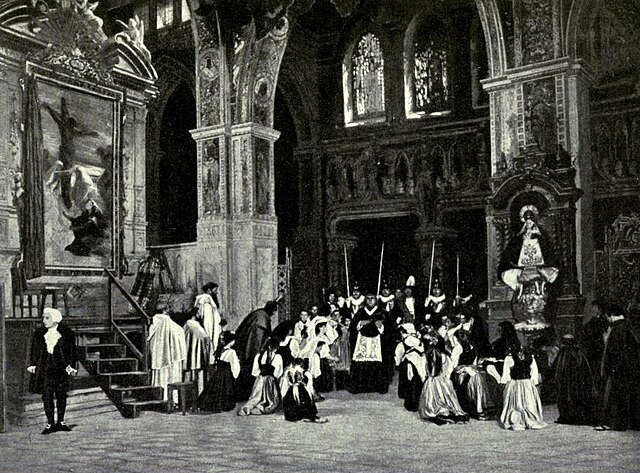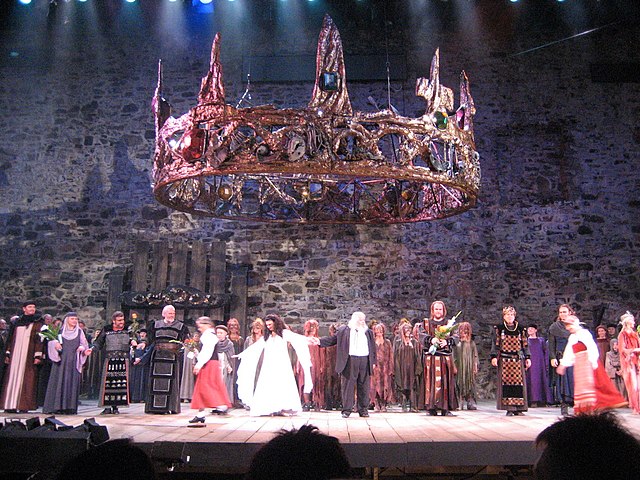Tosca is an opera in three acts by Giacomo Puccini to an Italian libretto by Luigi Illica and Giuseppe Giacosa. It premiered at the Teatro Costanzi in Rome on 14 January 1900. The work, based on Victorien Sardou's 1887 French-language dramatic play, La Tosca, is a melodramatic piece set in Rome in June 1800, with the Kingdom of Naples's control of Rome threatened by Napoleon's invasion of Italy. It contains depictions of torture, murder, and suicide, as well as some of Puccini's best-known lyrical arias.
Original poster, depicting the death of Scarpia
Punch cartoon depicting the end of Sardou's La Tosca, 1888
The Battle of Marengo, as painted by Louis-François Lejeune
The Te Deum scene which concludes act 1; Scarpia stands at left. Photograph of a pre-1914 production at the old Metropolitan Opera House, New York
Opera is a form of theatre in which music is a fundamental component and dramatic roles are taken by singers. Such a "work" is typically a collaboration between a composer and a librettist and incorporates a number of the performing arts, such as acting, scenery, costume, and sometimes dance or ballet. The performance is typically given in an opera house, accompanied by an orchestra or smaller musical ensemble, which since the early 19th century has been led by a conductor. Although musical theatre is closely related to opera, the two are considered to be distinct from one another.
Macbeth at the Savonlinna Opera Festival in St. Olaf's Castle, Savonlinna, Finland, in 2007
La Scala of Milan
Palais Garnier of the Paris Opéra
Berlin State Opera








